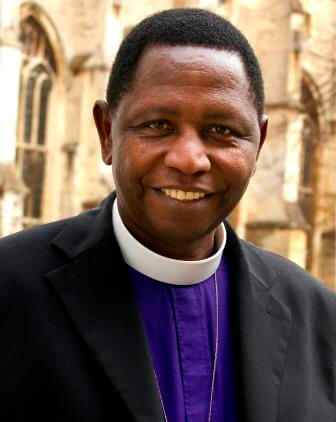Archbishop of Uganda condemns 'deep betrayal' of biblical standards in Anglican Communion

The Archbishop of Canterbury's attempt to heal divisions over homosexuality in the Anglican Communion is on the brink of failure after the Church of Uganda disclosed it is to boycott the next meeting of the communion's central body.
Archbishop of Uganda Stanley Ntagali, who in common with most of his fellow Global South primates is strongly conservative, has openly condemned the "spirit of defiance against Biblical faith and order" that he says "has infected the structures and leadership" of the Anglican Communion.
In a passionate letter that makes clear his disappointment and hurt, he says he feels "betrayed" by Anglican leaders. Accusing the leadership of lacking the will to follow through on discipline, he describes it again as "another deep betrayal".
He said that as a result, Uganda will not be at the Anglican Consultative Council in Lusaka, Zambia in April.
This comes after the US Episcopal Church declared that in spite of "consequences" imposed by the primates in January as a result of its liberal policies on gay ordination and gay marriage, its delegates will attend and vote at the meeting.
In his Lenten letter posted on his website and reported also by George Conger at Anglican Ink, Archbishop Ntgali said he was greatly burdened in praying for his country which has been going through local and national elections. Uganda currently imposes heavy criminal penalties for homosexual activity.
But his second "burden in prayer" was for the Anglican Communion which he said had been "torn at its deepest level" in 2003 after openly gay Gene Robinson was consecrated Bishop of New Hampshire. He said the communion was "broken" and in need of a new constitution.
"We felt so betrayed," he said, referring to the actions of The Episcopal Church at the time. "It was a double betrayal – betraying the clear message of the Bible and betraying an agreement the primates had made unanimously."
Thirteen years later, with a new Presiding Bishop, Michael Curry, in TEC and a new Archbishop of Canterbury, Justin Welby, Uganda was "cautiously optimistic" that the tear in the fabric of the communion could be repaired and betrayal healed, he continues.
"The overwhelming majority of primates voted that there should be relational consequences for TEC because they are officially promoting false teaching. They should, therefore, not be allowed to represent the Anglican Communion in ecumenical and interfaith dialogues. Likewise, they should not be allowed to vote on matters of doctrine and polity within the Anglican Communion," he said.
This was an important, symbolic vote because it was a rebuke. It also enabled the primates to re-state their commitment to the doctrine of marriage as between one man and one woman, and in line with resolution 1.10 of the 1998 Lambeth Conference.
Recent statements by TEC and others had made clear this was a "symbolic" and not a "substantive" vote.
Archbishop Ntgali, who was the only primate to leave the meeting before the vote, "Brothers and sisters in Christ, it is like we are back in 2003 where we continue to be betrayed by our leaders. The Primates voted to bring discipline to TEC and, yet, we now see that the leadership of the Anglican Communion does not have the will to follow through. This is another deep betrayal."
He also explained he left the meeting early because he sensed that the leadership was "not serious" about restoring Biblical faith within the Communion.
"A spirit of defiance against Biblical faith and order has infected the structures and leadership of the Anglican Communion. It is a very sad season in the life of our Anglican Communion."
He said the Church of Uganda's Provincial Assembly has resolved that the Church of Uganda will not take in meetings of the Anglican Communion until "godly order" is restored. "This has not yet happened. The Church of Uganda, therefore, will not be participating in the upcoming April meeting of the Anglican Consultative Council in Lusaka."
He and other primates will debate what they do next at the next meeting of the Gafcon Primates Council meeting in Chile in April.











